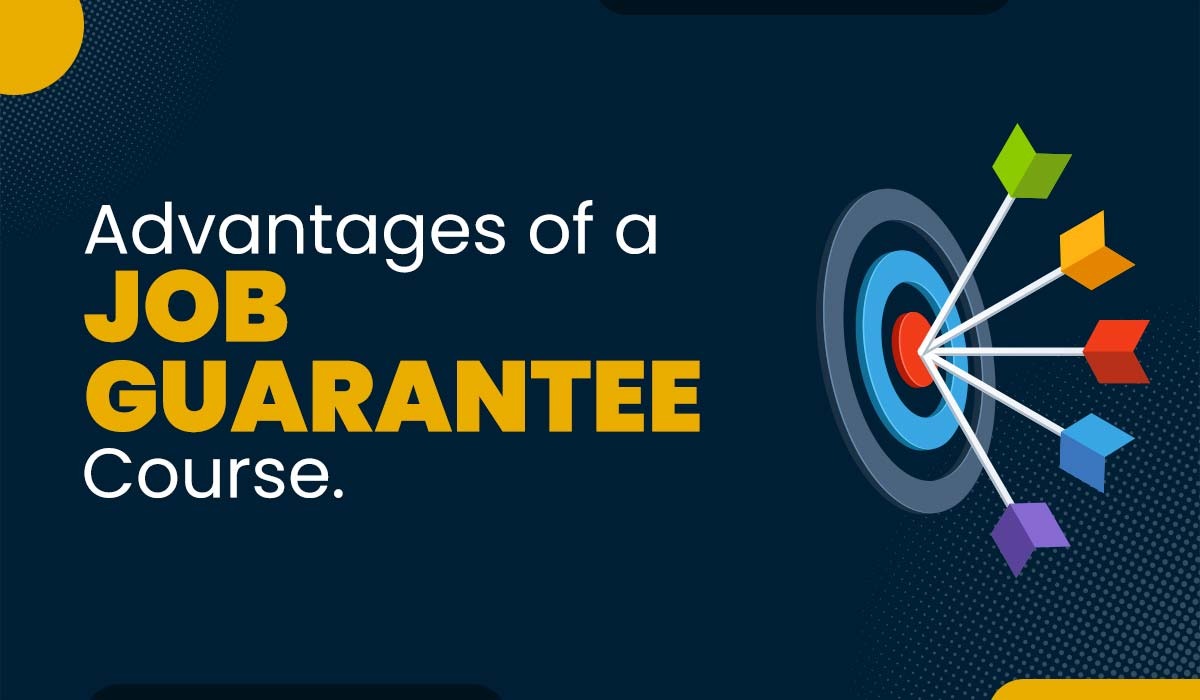Job Ready Course Benefits
100% Placement Guarantee Only In 3 Months
-
Skill Development:
- Acquire practical skills relevant to the specific job or industry.
- Gain hands-on experience and expertise in using industry tools, software, or equipment
-
Career Transition:
- Facilitate a smooth transition into a new career or field.
- Provide a foundation for individuals changing careers or entering a new industry.
-
Industry Relevance:
- Ensure that the skills acquired align with current industry demands and trends.
- Increase employability by learning skills in demand by employers.
-
Time Efficiency:
- ETypically, job-ready courses are focused and concise, allowing participants to acquire skills quickly.
- Minimize the time required to gain relevant qualifications compared to traditional degree programs.
-
Networking Opportunities:
- Connect with industry professionals, instructors, and fellow participants.
- Leverage networking opportunities provided by the course to enhance job prospects.

Not getting selected in interviews??
-
Self-Reflection:
- Analyze your past interviews and identify patterns or recurring issues. Consider aspects like communication skills, body language, and responses to common questions.
-
Resume and Cover Letter Review:
- Ensure that your resume and cover letter effectively highlight your skills, experiences, and accomplishments.
- Tailor your resume to match the job requirements and use action verbs to describe your achievements.
-
Research the Company:
- Demonstrating knowledge about the company shows your genuine interest. Research the organization’s values, culture, products/services, and recent news
-
Mock Interviews:
- Practice with mock interviews, either with a friend, family member, or career counselor.
- Focus on common interview questions and work on improving your responses and overall presentation.
-
Improve Communication Skills:
- Pay attention to your communication skills, including clarity, tone, and confidence.
- Practice active listening during interviews, and ensure that your responses directly address the questions asked.
Lacking confidence??
-
Identify and Challenge Negative Thoughts:
- Pay attention to negative thoughts and self-talk. Challenge and reframe them with more positive and realistic statements.
- Replace self-criticism with self-encouragement.
-
Set Realistic Goals:
- Break down larger goals into smaller, achievable tasks. Celebrate your successes, no matter how small.
- Setting and achieving realistic goals can build a sense of accomplishment.
-
Practice Self-Compassion:
- Treat yourself with kindness and understanding, especially when facing challenges or setbacks.
- Avoid harsh self-judgment and acknowledge that everyone makes mistakes.
-
Focus on Strengths:
- Identify and acknowledge your strengths and accomplishments.
- Utilize your strengths in various situations, and remind yourself of past successes.
-
Positive Affirmations:
- Use positive affirmations to reinforce a positive mindset.
- Repeat affirmations that emphasize your abilities, potential, and worth.
Poor communication skill??
-
Active Listening:
- Focus on what the other person is saying without interrupting.
- Demonstrate that you are engaged through nodding, eye contact, and verbal cues.
-
Clarity and Conciseness:
- Be clear and concise in your communication. Avoid unnecessary details that may confuse your message.
- Organize your thoughts before speaking.
-
Slow Down Your Speech:
- Speaking too quickly can make it challenging for others to follow. Practice speaking at a moderate pace.
- Allow pauses between thoughts to give your audience time to process information.
-
Non-Verbal Communication:
- Pay attention to your body language, facial expressions, and gestures.
- Ensure your non-verbal cues align with your verbal message to convey consistency.
-
Eye Contact:
- Maintain appropriate eye contact to establish a connection with your audience.
- Avoid staring, but don’t look away too frequently.